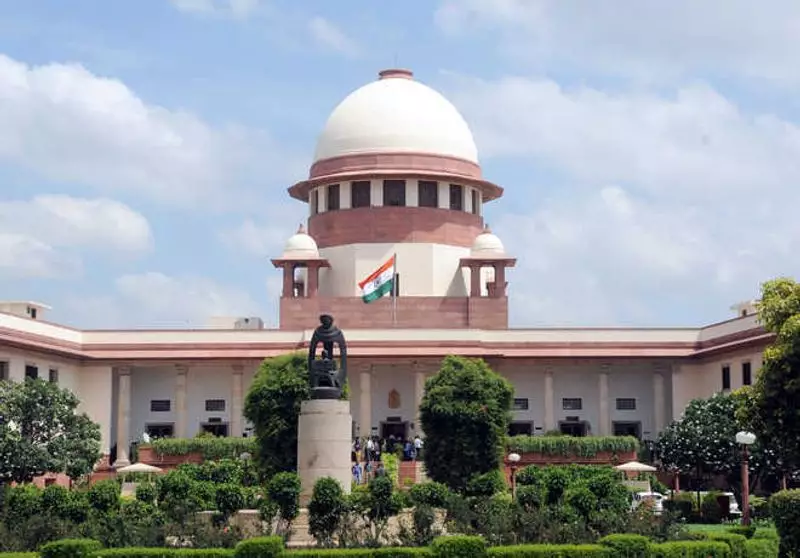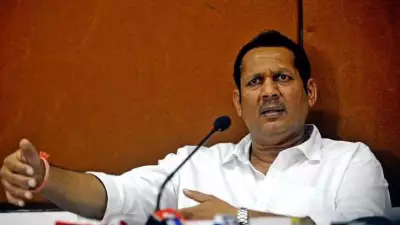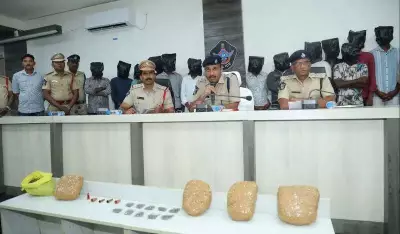
In a significant development before the Supreme Court, the Delhi Police has presented compelling evidence indicating that the 2020 Delhi riots were not spontaneous outbursts but meticulously pre-planned attacks targeting India's sovereignty and integrity. The law enforcement agency submitted these crucial findings while opposing bail petitions filed by several accused individuals involved in the violent episodes that shook the national capital.
Police Evidence Points to Conspiracy
The Delhi Police, in their comprehensive affidavit submitted to the apex court, detailed how the violence that erupted in February 2020 followed a carefully orchestrated pattern. According to investigative agencies, the riots represented a coordinated assault on national sovereignty rather than random communal clashes as initially perceived by some sections.
Investigators have uncovered substantial evidence showing that the violence was planned well in advance with specific objectives. The police documentation reveals that key individuals and organizations systematically planned the disruption that ultimately led to widespread destruction, loss of lives, and created significant law and order challenges in Delhi.
Legal Proceedings and Bail Rejections
The police submissions came specifically in response to bail applications filed by accused individuals, including former JNU student leader Umar Khalid. In their counter-affidavit, law enforcement authorities argued strongly against granting bail, emphasizing the serious nature of the charges and the overwhelming evidence collected during the investigation.
The Supreme Court bench, comprising Justices Sanjay Kishan Kaul and Manoj Misra, has been hearing these bail pleas while considering the police's substantial evidence. The judicial proceedings have brought to light the complex web of planning and execution that characterized the February 2020 violence.
Delhi Police investigators have maintained that the evidence clearly demonstrates how the riots were engineered to undermine national stability. The pattern of violence, the coordination between different groups, and the timing of events all point toward a larger conspiracy with clear objectives against the Indian state.
Investigation Timeline and Findings
The police investigation, which has spanned several years since the 2020 incidents, has methodically pieced together the sequence of events leading to the riots. Law enforcement agencies have compiled extensive documentation, including electronic evidence, witness statements, and forensic analysis that support their claims of pre-planning.
According to the police affidavit, the investigation has revealed how various elements coordinated their activities to maximize the impact of the violence. The planning phase involved multiple meetings, communication through various channels, and strategic positioning of resources to ensure the riots achieved their intended destructive purpose.
The police have emphasized that the evidence collection process has been thorough and scientifically conducted, leaving little room for doubt about the pre-meditated nature of the violence. The investigation has followed all legal protocols while gathering evidence that now forms the basis of the prosecution's case against the accused.
National Security Implications
The Delhi Police's submissions to the Supreme Court highlight the serious implications for national security that the 2020 riots represented. By characterizing the violence as an attack on sovereignty, the law enforcement agency has underscored the gravity of the situation and the need for stringent legal action against those responsible.
The police documentation suggests that the riots were not merely local disturbances but part of a larger pattern of activities aimed at challenging the Indian state's authority. This perspective has shaped the investigative approach and the legal strategy being pursued in the courts.
As the legal proceedings continue, the Delhi Police remain committed to presenting all evidence before the judiciary to ensure that justice is served. The agency has expressed confidence in the strength of their case and the comprehensive nature of their investigation into the February 2020 events.
The Supreme Court's eventual ruling on these matters is expected to have significant implications for how such cases are handled in the future and will set important precedents regarding national security concerns in riot investigations.





